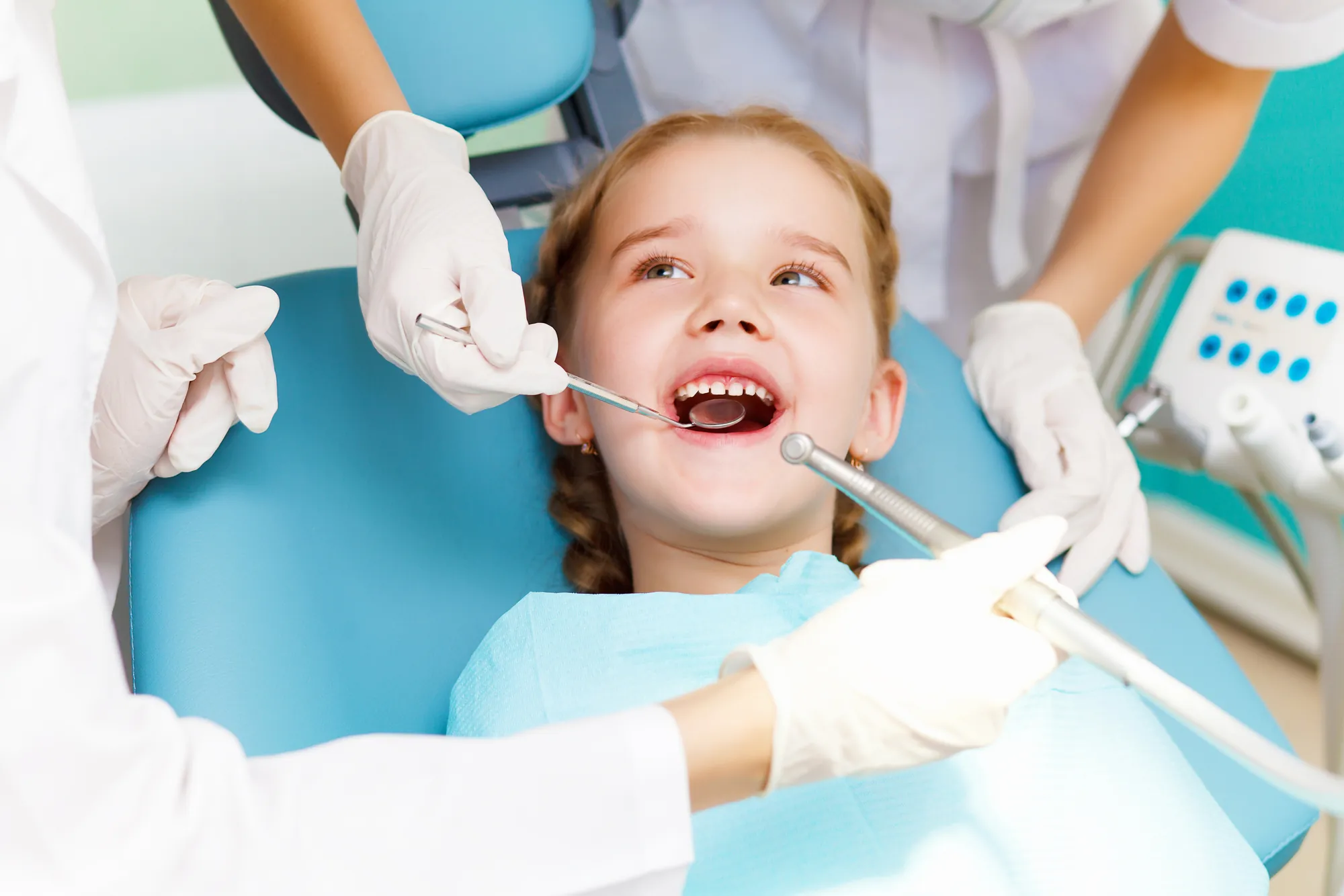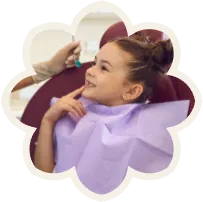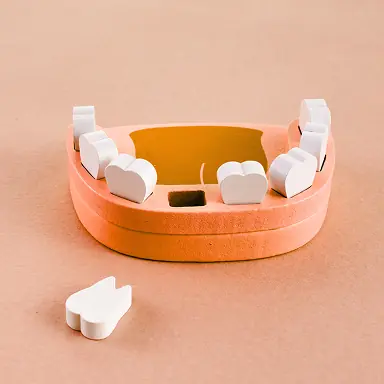What age should my child first see a dentist?
A dental home means having a regular dentist for your child from an early age. It's best to start by your child’s first birthday. This helps your child get comfortable with dental visits and sets the foundation for healthy teeth. A dental home provides check-ups, care if there’s a problem, advice as your child grows, and referrals to specialists when needed.






What can we expect during the first visit?
Depends! If this is your child’s first dental exam and cleaning, expect:

A Warm Welcome & Introduction
- You and your child will meet the dental team.
- The dentist will help your child feel comfortable, often using child-friendly language and a calm, playful approach.

Medical & Dental History Review
You’ll be asked about your child’s health, teething, thumb-sucking, diet, and any dental concerns.

Gentle Oral Exam
The dentist will check:
- Your child’s teeth and gums
- Jaw and bite development
- Any signs of decay or oral issues
For babies or toddlers, this might be done with your child sitting on your lap ("knee-to-knee" exam).

Cleaning
- A dental cleaning will be done to remove plaque and calculus
- Fluoride treatment might be offered to help protect the teeth from decay

Dental Radiographs
- Dental radiographs may be taken depending on your child's age and need
- Radiographs help us detect cavities and pathology in areas we are unable to see with our naked eyes
- The goal is to catch cavities early enough so that we can intervene with less invasive treatment options!

The dentist will talk to you about:
The dentist will check:
- Brushing and flossing tips
- Teething and thumb-sucking
- Diet and snacks
- What to expect as your child grows

What should I do to prepare my child for the visit?
Your child's first dental appointment can be intimidating, however, if possible, it's very important to prepare your little one for what may happen. Below are some tips to make it an overall positive experience:
- Read books or watch videos about going to the dentist ahead of time.
- Stay calm and positive—kids pick up on your attitude!
- Avoid using words like “hurt”, “pain” or "needles."
- Bring comfort items like a favorite toy or blanket.
What ages do you treat?
We see children from ages 0 to 20 or 21 depending on the insurance coverage.






